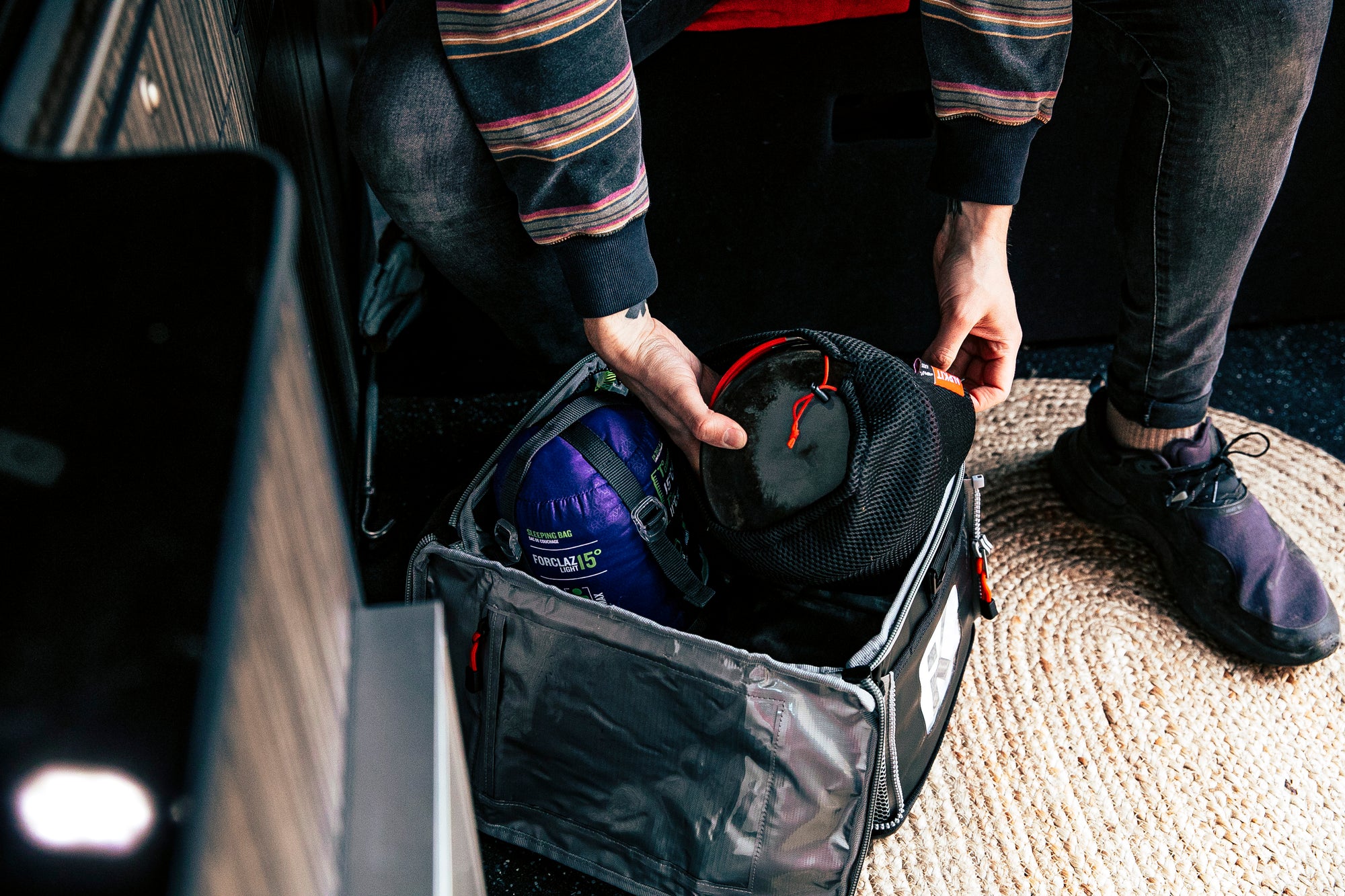
Chris Collerton, a Team GB Olympic Coach and High Performance Development Coach from Which Training Camp is here to tell you how you can make the most out of triathlon training camps. So how can training camps help you jump start your training?
There are 2 main reasons why athletes go on a warm weather training camp. To improve physiologically and to strengthen their psychological performance.
How can you achieve these goals? Here are some suggested points to help maximise your triathlon triathlon camp experience.
Warm weather triathlon training
Winter time at home; cold, wet, lack of sunshine and daylight hours. Does that sound familiar?
The cold weather tightens the muscles, making you more susceptible to injury and dampens the training desire.
The warmth of the midwinter sun will help your muscles loosen and perform better whilst you soak up your daily dose of vitamin D. It’s also a good opportunity to practice your hydration, something it’s easy to let slip over the winter when you sweat less.
Pre-triathlon training camp
The weeks leading up to the camp can be quite stressful. Suddenly everything that you've been putting to one side becomes important; it must be dealt with before you go, whether it's washing the kit you're taking with you, cleaning the house, clearing the in tray at work, answering emails, messenger and Facebook posts, it all needs to be done so you can leave for camp feeling calm and relaxed.
Check your checklist. Do you have enough gels, inner tubes, bike tools? Have you packed your Kitbrix bag with all the kit you'll need and made maximum use of all those great pockets and pouches? But as well as everything you need for the training side, don't forget to pack a couple of things you know make you feel good, be it luxury toiletries, a good book, your favourite music - something you can use as a little pick me up after a hard day or as a treat when you've exceeded your own expectations of yourself.

Pacing during triathlon training
Lack of external pressures such as work and family commitments may mean you feel super-energised, but your body will need a few days to adapt physically to its different environment. Being on camp you will have the opportunity to train for longer; more miles, more sessions each day, but beware of overdoing things at first. To help adapt to this new training regime it may be beneficial to tackle the early sessions at a slightly slower pace.
Remember, physiological improvements will be made if you complete the whole training program, but probably not if you injure yourself on the way or have to miss sessions because you overdid the previous ones. Pacing your training is a skill all in itself.
But it’s not only about completing all the training camp, it’s about making sure you continue training when you get home, and carry on with the good habits you have learned. With the reintroduction of the stresses you left behind as you headed off in search of warmer weather, you will have to reassess your program and address again how much you can do in your ‘normal’ environment. One of the good habits you should have learned is that you need to balance training and rest time (and, at home, work and family time come into the equation too).
Too often athletes finish the camp drained and travel home tired, which leaves the body vulnerable to any bugs. Athletes pick up infections from the plane and then back in their work environment. Be especially aware of your body for the first couple of weeks back home. Don’t immediately try to show off how much you’ve improved; wait for your competition period to do that.
Resting
Use the down time constructively. Remember, both body and mind need to recover. It’s good to sit and relax but if sitting means watching a high-octane action movie or getting on the laptop to do some work, this will probably mean you don’t recover as well as you could from one session to another.
If you like music, by all means take some that pumps you up for your training sessions, but don’t forget some to calm you down and help you relax afterwards.
Afternoon naps are good; make sure it’s just a nap, though, as too much sleep will lead to a restless night. Even just a lie down without actually sleeping will be a good opportunity for your body to recover.

Make the most of triathlon training camp
Winter time at home will probably stop your open water swim sessions and you probably won’t be able to cycle for too long because you work and then it’s dark early. So the camps are a good way to focus on things you can’t do at home and on sessions which tend to fall by the wayside if you’re under pressure, like core work and stretching.
Use some of your down time to fine tune your annual plan, maybe read through your training diary. This will allow you time to understand what has been working well for you, what improvements you have made, what areas you may need to bring up to the levels of your leading strengths. This can be a real eye-opener.
Evenings are a great opportunity to tap into coaches and other athletes. Suck up their experiences and grab any knowledge they may have that will help improve your performances.
Save racing for triathlon race day
Keep any egos in check. To maximise the training effect you need to work at and to your own level. Racing someone else each session will not give you the gains you’re after. Wait until you race to see who is fastest. The best athletes control their training and come good in races.
Set training goals
You should have an objective for each session; did you complete the 120km ride having reserved plenty of energy for the following session? Were you able to recognise that your hand was entering the water between the centre line of the head and the shoulder line? Were you able to find everything in your Kitbrix bag to help speed up your transition stage?

Triathlon nutrition
Watch what you eat. Some athletes have been known to think whilst on training camp they need way too much food and then come back heavier. Yes, you will need to eat more, but be sensible about things. Those extra kilos may cancel out any speed gains you’ve made when you hit a climb!
Enjoy the triathlon training camp
During your training camp, you will be immersed into the world of the full time athlete, but that’s not a reason to make it too serious. You will find even the top athletes in your sport have fun whilst they train. Pack a dose of humour in your suitcase, make new friends and enjoy the experience.
Author Chris Collerton; Team GB Olympic Coach and High Performance Development Coach

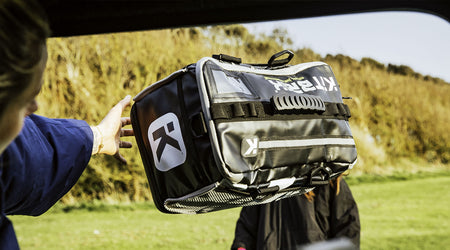
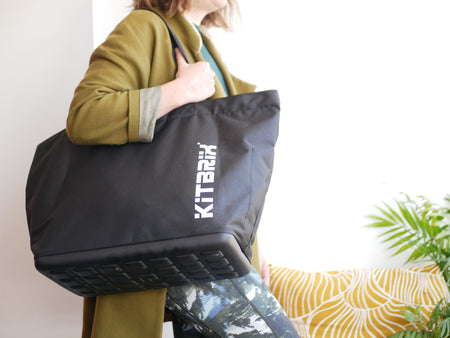
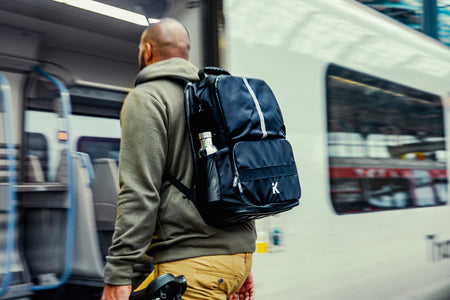
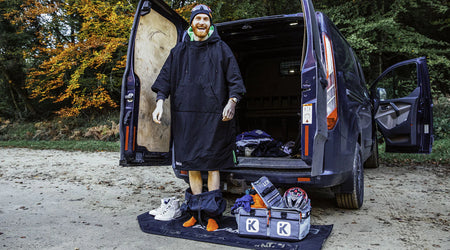
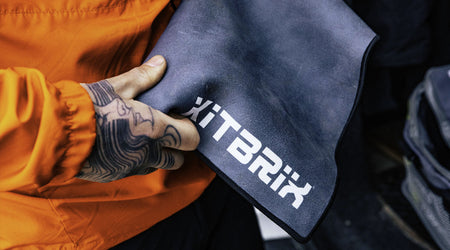
0 comments